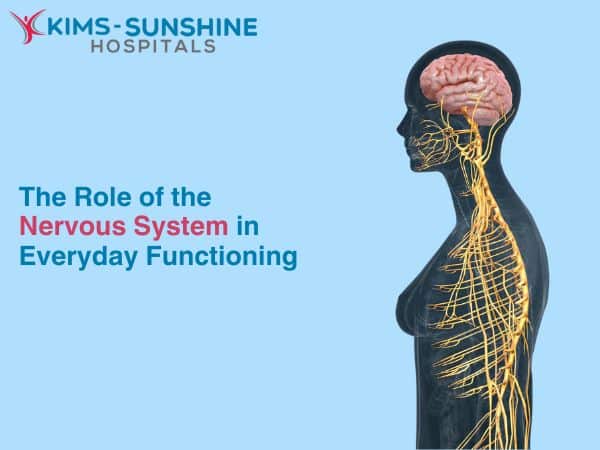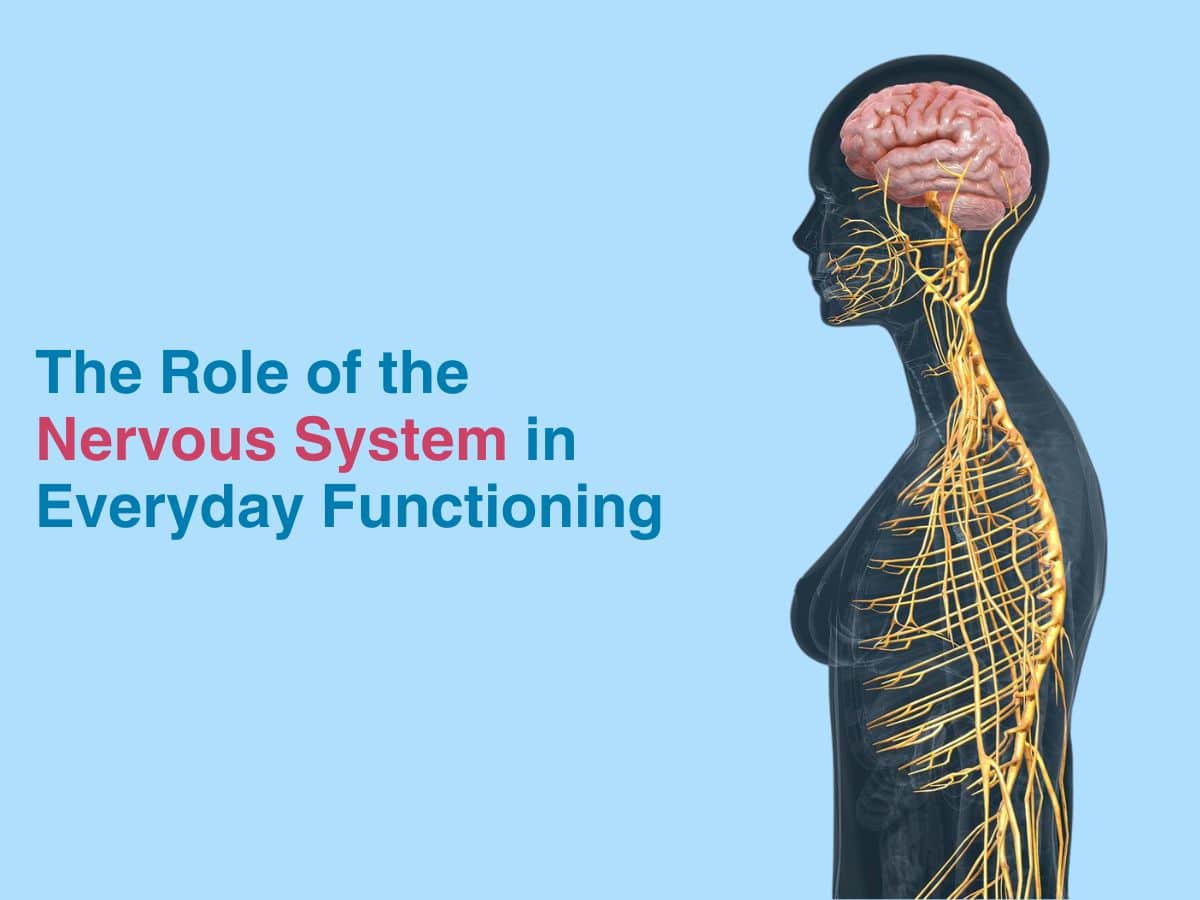
The Role of the Nervous System in Everyday Functioning

You can think of the brain as the main command centre of your body, floating around in your skull in a highly pressurised and protected, fluid containing environment and the nervous system as the wires that connect to all the parts of the body – the cells, the groups of muscles, the eyes, the tiny toe, everywhere in fact. The signal from the brain travels super fast via the insulated nervous system that consists of bundles of nerve fibres – all of which begin from various points in the spinal cord in our back and reach out to the whole body. This nervous system hence consists of the brain, spinal cord and all the nerves needed to help us feel emotions, make memories, move around, help us understand what happens around us and also help with decision making and due process.
How the Nervous System Controls Daily Activities-
- The nervous system like we said is an insulated, chord-like structure that runs from the base of the brain to virtually every part of the body and in doing so helps us stay in control of everything we want to do in life. Some activities may seem very simple but they are in reality very complex. Let us look at some of the functions that the nervous system is responsible for-
- We wake up and feel the need to go to sleep at a particular time because of the nervous system.
- We can feel everything around us – the 5 senses- taste, touch, hearing, sight and smell.
- We know what that 5 senses actually mean to us because of the power of perception
- What we think, read, learn, memory – all of these processes happen.
- How we respond to a particular situation is deeply ingrained in us but we can train ourselves to respond differently
- Bodily functions like temperature, feelings like hunger, thirst, fatigue, digestion, breathing, needing to procreate- all of our natural urges can be attributed to the nervous system.
It is important to remember that the functioning of the nervous system gets affected when someone has a disease or medical condition. Treatment mostly focuses on getting rid of the symptoms, but personalised medicine now is trying to deal with the issue from the very beginning.
Impact of the Nervous System on Learning and Memory-
The brain is an amazingly elastic organ which means that if you learn something new today, it will try to retain that information for future use. This means new pathways in the brain are literally being formed, if you think we have given you some information that you didn’t know before. All the information we need to survive gets coded and stored in the hippocampus – a seahorse shaped bendy groove deep within the brain. This happens with the help of very specific chemicals called neurotransmitters. Many diseases like Alzheimer’s, dementia, Parkinson’s, epilepsy etc. are all caused due to these neurotransmitters not being produced sufficiently or their specific pathways not working properly. We don’t know why these diseases show up much earlier in some people than others, though we do attribute some forgetfulness with normal ageing.
Role of the Nervous System in Stress Response and Relaxation-
We all know that more stress means higher levels of cortisol in the blood but that is because the brain is signalling that it needs to be made in higher quantities. So, actively trying to destress by doing yoga, guided meditation, listening to your favourite music or just indulging with your favourite hobby – they are all great ways to ensure you don’t snap and get anxiety or related issues. Too much of constant stress can affect the brain in a negative way – by not allowing you to form memories properly. The brain can be taught to relax if you decide to take some time off.
Conclusion
There are many issues that can necessitate a visit to the doctor – like anxiety, ageing, forgetfulness, other disorders that affect movement and learning or cognitive abilities. Symptoms don’t show up till many years or decades later as the brain tends to compensate for any loss in cells or function. You should learn to be aware of your brain and body in the same way it helps you know how your surroundings are.
Frequently Asked Questions
How can I prevent bone loss and joint pain as I get older?
Are there supplements that support bone and joint health?
What causes joint pain in older adults, and how can I prevent it?
How do I maintain bone density as I age?
How can I keep my joints flexible as I get older?

Dr. CH. Gopal
MBBS, MD (NIMS), DM (Osmania)
Sr. Consultant Neuro Physician






